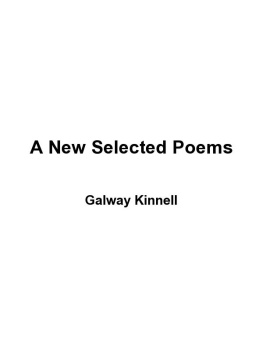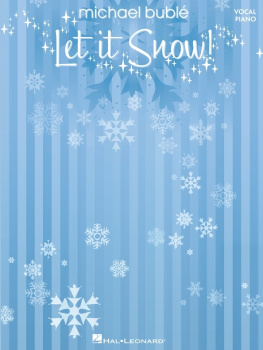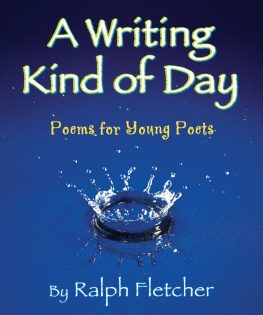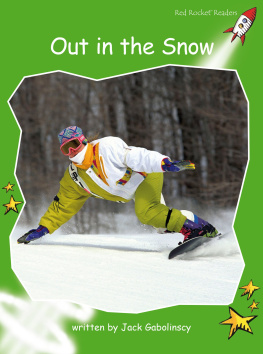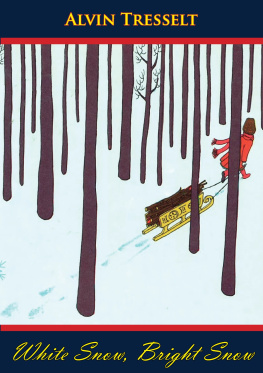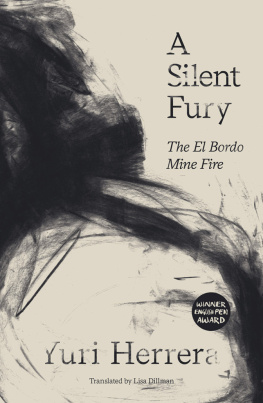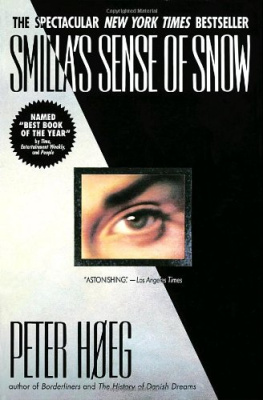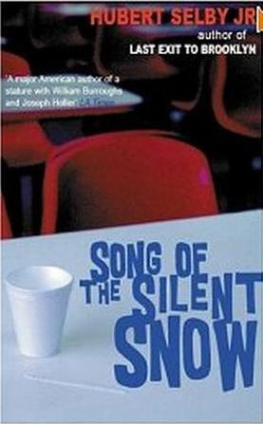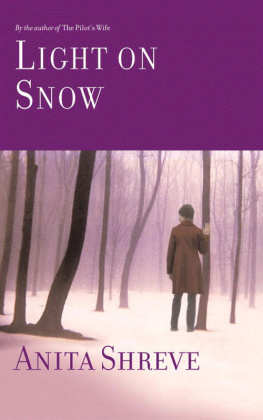First Mariner Books edition 2001
Copyright 2000, 2001 by Galway Kinnell
All rights reserved
For information about permission to reproduce selections from
this book, write to Permissions, Houghton Mifflin Company,
215 Park Avenue South, New York, New York 10003.
Library of Congress Cataloging-in-Publication Data
Kinnell, Galway, date.
[Poems. Selections]
A new selected poetry / Galway Kinnell.
p. cm.
ISBN 0-618-02187-6
ISBN 0-618-15445-0 (pbk.)
I. Title.
PS 3521.1582 A 6 2000
811'.54dc21 99-048904
Book design by Anne Chalmers
Typeface: Electra
Printed in the United States of America
QUM 10 9 8
The eight poems from When One Has Lived a Long Time Alone,
copyright 1990 by Galway Kinnell, are reprinted by kind permission
of Alfred A. Knopf, a division of Random House, Inc.
To E PHRAIM and M IRAH
O yonge, fresshe folkes, he or she,
In which that love upgroweth with youre age
...thynketh al nys but a faire
This world, that passeth soone as floures faire.
Chaucer
Author's Note
In this paperback edition of A New Selected Poems, I have taken out three poems, all from early books, that were included in the hardcover edition, and added eight others, mostly from later books. This edition also incorporates revisions that were not present in the hardcover book. For many years, I have felt exasperated by my intractable habit of working at certain poems again and again, over long spans of time. But in recent years I have come to accept that, at least in the case of a complex project, this is simply how I write. It makes me think of the digestive process of a Methuselah-ian ruminant animal, one with many many stomachs, that chews its cud for decades (though I don't want to carry this analogy to its logical alimentary end). From the outside, it may seem only that a given poem has been belatedly revised, while to me, making these changes was still part of the process of composition, a final stage in the protracted struggle with my very "sullen art."
I would like to thank my peerless editor, Pat Strachan; Janet Silver, editor in chief; and Wendy Strothman, executive vice president, all of Houghton Mifflin, for understanding how necessary these reworkings are to me in my effort to bring the poems into their final form.
From What a Kingdom It Was 1960
First Song
Then it was dusk in Illinois, the small boy
After an afternoon of carting dung
Hung on the rail fence, a sapped thing
Weary to crying. Dark was growing tall
And he began to hear the pond frogs all
Calling on his ear with what seemed their joy.
Soon their sound was pleasant for a boy
Listening in the smoky dusk and the nightfall
Of Illinois, and from the fields two small
Boys came bearing cornstalk violins
And they rubbed the cornstalk bows with resins
And the three sat there scraping of their joy.
It was now fine music the frogs and the boys
Did in the towering Illinois twilight make
And into dark in spite of a shoulder's ache
A boy's hunched body loved out of a stalk
The first song of his happiness, and the song woke
His heart to the darkness and into the sadness of joy.
For William Carlos Williams
When you came and you talked and you read with your
Private zest from the varicose marble
Of the podium, the lovers of literature
Paid you the tribute of their almost total
Inattention, although someone when you spoke of a pig
Did squirm, and it is only fair to report another gig
gled. But you didn't even care. You seemed
Above remarking we were not your friends.
You hung around inside the rimmed
Circles of your heavy glasses and smiled and
So passed a lonely evening. In an hour
Of talking your honesty built you a tower.
When it was over and you sat down and the chair
man got up and smiled and congratulated
You and shook your hand, I watched a professor
In neat bow tie and enormous tweeds, who patted
A faint praise of the sufficiently damned,
Drained spittle from his pipe, then scrammed.
Freedom, New Hampshire
1
We came to visit the cow
Dying of fever,
Towle said it was already
Shoveled under, in a secret
Burial-place in the woods.
We prowled through the woods
Weeks, we never
Found where. Other
Children other summers
Must have found the place
And asked, Why is it
Green here? The rich
Guess a grave, maybe,
The poor think a pit
For dung, like the one
We shoveled in in the fall,
That came up a brighter green
The next year, that
Could as well have been
The grave of a cow
Or something, for all that shows.
2
We found a cowskull once; we thought it was
From one of the asses in the Bible, for the sun
Shone into the holes through which it had seen
Earth as an endless belt carrying gravel, had heard
Its truculence cursed, had learned how human sweat
Stinks, and had brayedshone into the holes
With solemn and majestic light, as if some
Skull somewhere could be Baalbek or the Parthenon.
That night passing Towle's Bam
We saw lights. Towle had lassoed a calf
By its hind legs, and he tugged against the grip
Of the darkness. The cow stood by, chewing millet.
Derry and I took hold, too, and hauled.
It was sopping with darkness when it came free.
It was a bullcalf. The cow mopped it awhile,
And we walked around it with a lantern,
And it was sunburned, somehow, and beautiful.
It took a teat as the first business
And sneezed and drank at the milk of light.
When we got it balanced on its legs, it went wobbling
Toward the night. Walking home in darkness
We saw the July moon looking on Freedom, New Hampshire,
We smelled the fall in the air, it was the summer,
We thought, Oh this is but the summer!
3
Once I saw the moon
Drift into the sky like a bright
Pregnancy pared
From a goddess who had to
Keep slender to remain beautiful
Cut loose, and drifting up there
To happen by itself
And waning, in lost labor;
As we lost our labor
Tooafternoons
When we sat on the gate
By the pasture, under the Ledge,
Buzzing and skirling on toilet
papered combs tunes
To the rumble-seated cars
Taking the Ossipee Road
On Sundays; for
Though dusk would come upon us
Where we sat, and though we had
Skirled out our hearts in the music,
Yet the not-yet dandruffed
Harps we skirled it on
Had done not much better than
Flies, which buzzed, when quick
We trapped them in our hands,
Which went silent when we
Crushed them, which we bore
Downhill to the meadowlark's
Nest full of throats, which
Derry charmed and combed
With an Arabian air, while I
Chucked crushed flies into
Innards I could not see,
For the night had fallen
And the crickets shrilled on all sides
In waves, as if the grassleaves
Shrieked by hillsides
As they grew, and the stars
Made small flashes in the sky,
Like mica flashing in rocks
On the chokecherried Ledge
Where bees I stepped on once
Hit us from behind like a shotgun,
And where we could see
Windowpanes in Freedom flash
And Loon Lake and Winnipesaukee
Flash in the sun
And the blue world flashing.
4
The fingerprints of our eyeballs would zigzag
On the sky; the clouds that came drifting up
Our fingernails would drift into the thin air;
In bed at night there was music if you listened.
Of an old surf breaking far away in the blood.
Children who come by chance on grass green for a man
Can guess cow, dung, man, anything they want,
To them it is the same. To us who knew him as he was
Next page
